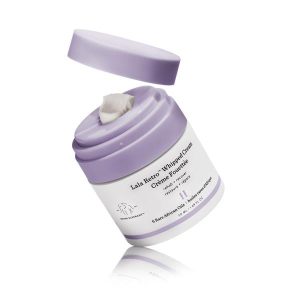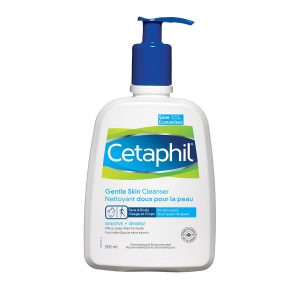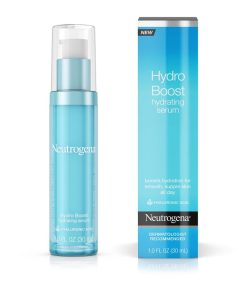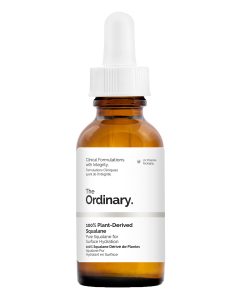Plenty of people get finicky, cracked skin in the winter, but not everyone knows they can attribute it to winter-related behaviours. We spoke to Dr. Benjamin Barankin, a Toronto-based dermatologist who is both a spokesperson for the Acne and Rosacea Society of Canada and the medical director of the Toronto Dermatology Centre, for the lowdown on winter dryness and what it means for all skin types, including sensitive.
What is winter dryness and what does it mean for our skin?
Winter air is dry, and by heating our homes, we dry it further. Winter skin is often dull, more irritable, more flaky, and more itchy, as well as more pink. The face is particularly exposed to the elements, including windburn, which makes it the worst-off area, along with your hands.
Do people with acne or rosacea deal with any particular winter problems/effects?
Acne is more likely to flare in the winter, but rosacea less so (since sun aggravates rosacea in many cases). Since the skin is more irritable in winter, we need to be gentler with it. Acne treatment products, more so than those for rosacea, can aggravate the skin, and so being more diligent with moisturizing well, cleansing gently and not picking at the skin or over-exfoliating are all good ideas.

29Secrets Pick: Drunk Elephant Lala Retro Whipped Cream, $75, is a rich yet airy moisturizer that uses a blend of six rare African oils rich in omega fatty acids to deliver intense moisture through the day and night.
Are there any practices people should try to avoid because they worsen winter dryness?
Bathing and washing your face with overly hot water can dehydrate the skin further. Increased, better and thicker moisturizing is advised. No picking, squeezing or popping of anything, and limit skin exfoliation to twice a week. If it’s a particularly cold or windy day, perhaps even just stay in.
What is the key to protecting your skin in the winter?
Avoid being outdoors if possible on cold & windy days, dress warm and in layers, and have a thick moisturizing cream on the face to minimize the effects of the elements. Consider wearing a sunscreen if out and about or skiing, as ultraviolet radiation, though weaker, is still present.

29Secrets Pick: Soap-free Cetaphil Gentle Skin Cleanser, $16, cleans without stripping the skin and its oil-free formula works for all skin types.
Do people with specific skin concerns (hypersensitivity, acne or rosacea) have to follow different steps or keep anything particular in mind while protecting their skin in the winter?
Using gentle skin care and remembering to still wear sunscreen are always important, as are avoiding the elements where possible. Use cleansers instead of soap, and avoid fragranced products if possible. Pat dry the skin after washing, don’t rub, and once again, certainly don’t pick at your skin!
Is there something people often misunderstand about seasonal dryness?
In summer/humid weather, we can get away with lighter moisturizers, but in the winter, we should adjust to thicker, higher-quality moisturizers, especially right after bathing or getting our skin wet. We also should turn up the humidifier from November to May for our home, and even consider placing a small unit in our bedroom as well.

29Secrets Pick: Give your skincare routine an extra boost of moisture with a hyaluronic acid-infused serum such as Neutrogena Hydro Boost Hydrating Serum, $22.79 -24.99 at Shoppers Drug Mart. Hyaluronic acid acts like a sponge to draw moisture from the air and into your skin.
Is there something people often forget to talk about when dealing with winter dryness?
Essentially, humidifying, as mentioned above. Some people don’t realize that medications like cholesterol-lowering drugs and as well aging itself both contribute to drying out of the skin.
Are there any signs that might tell us when winter sensitivity might need professional attention from a dermatologist?
If the skin is uncomfortable on a regular basis, itchy, affecting your focus at work/school or affecting your sleep, it’s best to see a physician for a variety of treatment options and counseling.

29Secrets Pick: Layering a few drops of face oil over your moisturizer can work wonders on dull, dehydrated skin. The Ordinary Plant-Derived Squalane, $8, is a lightweight yet super-effective hydrator based on squalane, which is found naturally in the skin.












